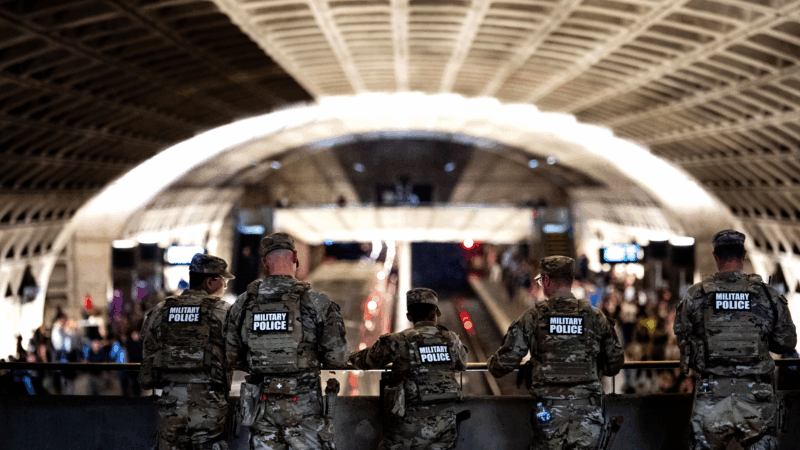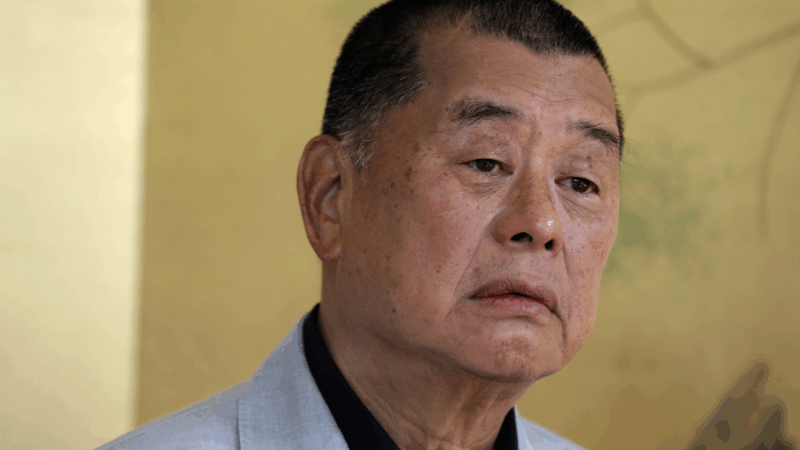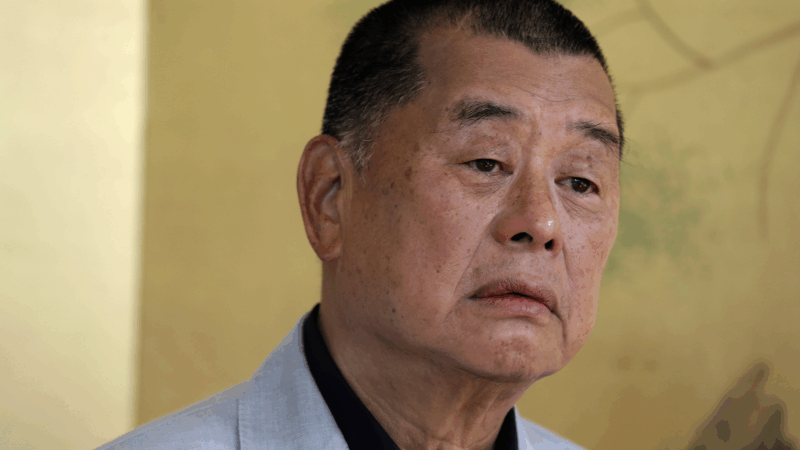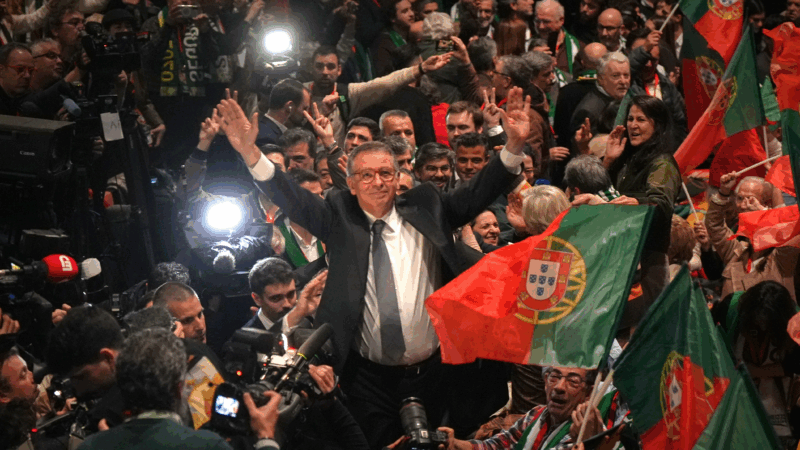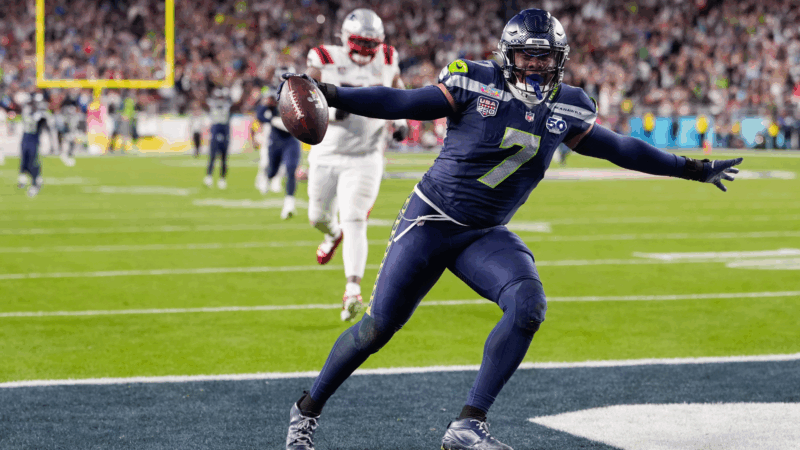Where things stand with Trump’s National Guard threats in Chicago and other cities
Chicago, Baltimore and New Orleans are preparing for the potential arrival of National Guard troops — in what may be the latest set of cities targeted under President Trump.
Trump mentioned all three cities this week as possible places for troop deployment in order to curb crime – though data shows that crime has gone down in those cities. It comes after the use of the National Guard in Los Angeles in June and Washington, D.C. in August.
In Chicago, home to one of the largest Mexican communities in the U.S., organizers of a Mexican Independence celebration this weekend told NPR they planned to bolster their event with a large team of volunteers and distribute “know your rights” cards.
“ We won’t let anyone rain on our parade,” said Vicky Lugo, the lead organizer for the event in the city’s lower west side.
Chicago
Major events will continue this weekend as scheduled in Chicago, including Taste of Chicago, Printers Row Lit Festival and Sundays on State, but organizers say they’ll be monitoring the situation closely, member station WBEZ reported.
At least one celebration for Mexican Independence Day, which is on Sept. 16, has been postponed to November because of worries about immigration raids and National Guard deployment, according to Fox 32 Chicago.
Lugo said her group chose to move forward with their Mexican Independence Day parade this Saturday because of the groundswell of support and influx of volunteers they received.
“ Honestly, it’s the support of the community that we have gotten that has kept us going,” she said.
When asked about the upcoming Mexican Independence Day events, Chicago’s mayor Brandon Johnson on Friday encouraged residents to come together and celebrate.
“I’m not intimidated and no one should be,” he said.
Earlier this week, Illinois Gov. JB Pritzker said he expects Trump to deploy “unidentified agents in unmarked vehicles” to Latino neighborhoods in Chicago, along with federal agents at federal properties throughout the city.
“We are ready to fight troop deployments in court and we will do everything possible to ensure that agents operating inside the confines of this state do so in a legal and ethical manner,” he said.
Baltimore
Maryland Gov. Wes Moore and Baltimore Mayor Brandon Scott have been discussing what kinds of legal action they can take against the Trump administration if troops are deployed in the city, member station WYPR reported.
At a press conference on Friday night, Moore said he welcomes federal support but “we want federal supports that actually work.” He went on to criticize the Trump administration for slashing funds for violence prevention programs.
On Friday, Moore and Scott also announced that the city of Baltimore will receive additional state law enforcement resources to tackle crime, including from the Maryland State Police and Maryland Transportation Authority Police.
New Orleans
Unlike the Democratic governors in Illinois and Maryland, the Republican governor of Louisiana, Jeff Landry, has supported the prospect of troops coming to the city of New Orleans.
Earlier this week, Landry wrote on X “We will take President @realDonaldTrump’s help from New Orleans to Shreveport!”
Landry was also among the handful of Republican governors to send National Guard troops to Washington, D.C. to support Trump’s crime crackdown.
In a joint statement on Wednesday, New Orleans Mayor LaToya Cantrell’s office and the New Orleans Police Department did not comment on whether they support or oppose the use of troops, but emphasized that their current approach has shown progress in reducing crime.
“The City of New Orleans and NOPD remain committed to sustaining this momentum, ensuring that every neighborhood continues to feel the impact of these combined efforts,” the statement read.
Meanwhile, the mayor of Shreveport, Tom Arceneaux, said he respected the governor’s concern for public safety but cautioned that the most effective approach is through discussions among local, state and federal officials to identify long-term solutions.
“Any city our size can always use additional resources in the battle against crime. The question is how, when, and in what form to provide those resources,” he said in a statement on Thursday.
Crackdown on dissent after nationwide protests in Iran widens to ensnare reformist figures
Detained Nobel Peace Prize laureate Narges Mohammadi has received another prison sentence of over seven years.
Crackdown on dissent after nationwide protests in Iran widens to ensnare reformist figures
Detained Nobel Peace Prize laureate Narges Mohammadi has received another prison sentence of over seven years.
China critic and former media tycoon Jimmy Lai is sentenced to 20 years in a Hong Kong security case
Jimmy Lai, the pro-democracy former Hong Kong media tycoon and a fierce critic of Beijing, was sentenced on Monday to 20 years in prison in the longest punishment given so far under a China-imposed national security law that has virtually silenced the city's dissent.
China critic and former media tycoon Jimmy Lai is sentenced to 20 years in a Hong Kong security case
Jimmy Lai, the pro-democracy former Hong Kong media tycoon and a fierce critic of Beijing, was sentenced on Monday to 20 years in prison in the longest punishment given so far under a China-imposed national security law that has virtually silenced the city's dissent.
Center-left Socialist candidate wins over populist in Portugal’s presidential runoff
Center-left Socialist candidate António José Seguro recorded a thumping victory over hard-right populist André Ventura in Portugal's runoff presidential election Sunday, according to official results.
Seahawks win Super Bowl title, pounding the Patriots 29-13
Seattle's "Dark Side" defense helped Sam Darnold become the first quarterback in the 2018 draft class to win a Super Bowl, to win the franchise's second title.

